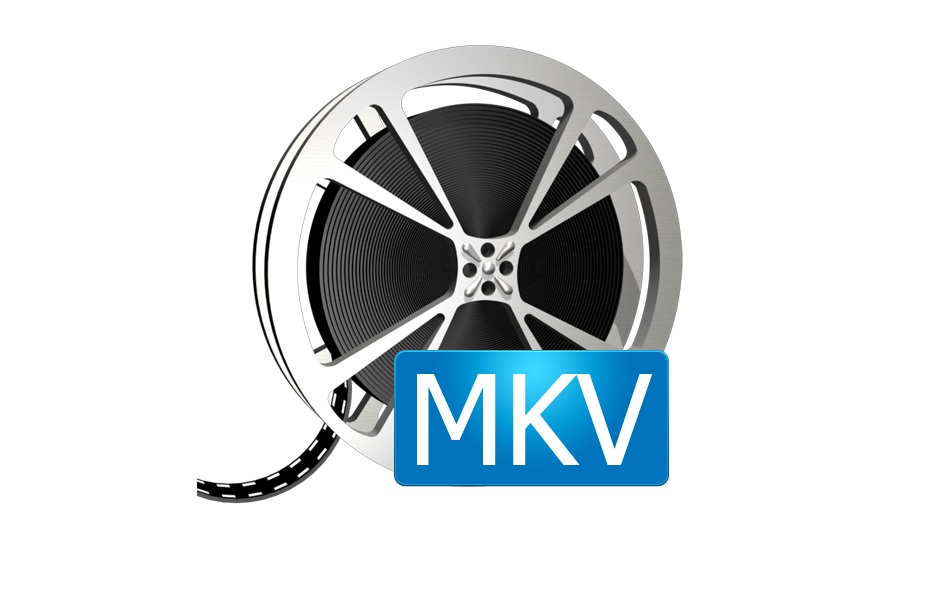How To Open MKV Files Like A Pro: Your Ultimate Guide
Let’s face it—opening MKV files can feel like solving a mystery, especially if you're not tech-savvy. But don’t panic! MKV files are more common than you think, and with the right tools and knowledge, you’ll be streaming your favorite movies or shows in no time. If you’ve ever wondered how to open MKV files without losing quality or dealing with compatibility issues, you’re in the right place. We’ve got all the answers you need.
First things first, what exactly is an MKV file? Simply put, it’s a multimedia container format that holds videos, audio, subtitles, and even metadata. Think of it as a digital Swiss Army knife for media lovers. The thing is, not every device or software can handle MKV files out of the box. That’s why understanding how to open MKV files properly is crucial if you want to enjoy seamless playback.
Now, before we dive deep into the nitty-gritty details, let me tell you something cool. MKV stands for Matroska Video, and it’s quickly becoming the go-to format for high-quality media enthusiasts. So whether you’re downloading movies, TV shows, or even home videos, chances are you’ll come across MKV files sooner or later. Ready to master them? Let’s get started!
Read also:Sydney Thomas Nude Unveiling The Truth Behind The Viral Sensation
Table of Contents
- What is an MKV File?
- Why Use MKV Files?
- How to Open MKV Files
- Best Players for MKV Files
- Converting MKV Files
- Common Issues When Opening MKV Files
- Tips for Working with MKV Files
- MKV File Compatibility
- Security Concerns with MKV Files
- Conclusion: Take Control of Your MKV Files
What is an MKV File?
Alright, so you’ve probably stumbled upon the term MKV and wondered, “What on earth is this thing?” Well, let’s break it down. An MKV file is basically a container format that can hold multiple types of media streams, including video, audio, and subtitles. It’s like a digital vault where all your media goodies live together in harmony.
Here’s the kicker: MKV files are open-source, meaning they’re free to use and modify. Unlike other proprietary formats like MP4 or AVI, MKV doesn’t lock you into specific codecs or restrictions. This makes it incredibly flexible and versatile for both creators and consumers.
But wait, there’s more! MKV files support advanced features like chapters, multiple audio tracks, and even metadata like cover art. So if you’re someone who loves organizing their media library, MKV is your best friend.
Why MKV is Gaining Popularity
- Open-source and free to use
- Supports multiple codecs and formats
- High-quality playback without compression
- Flexible for adding subtitles and multiple audio tracks
Why Use MKV Files?
Let’s talk about why MKV files are worth your time. For starters, they offer unmatched quality and flexibility. If you’re a movie buff or a content creator, you know how important it is to have a format that can handle high-definition video without sacrificing performance.
Imagine this: you’re watching a 4K movie with Dolby Atmos sound, and everything just flows smoothly without any hiccups. That’s the power of MKV. Plus, if you’re dealing with multilingual content, MKV lets you switch between different audio tracks and subtitles effortlessly.
Another great thing about MKV is its compatibility with various devices and platforms. Whether you’re using a Windows PC, Mac, or even a smart TV, chances are there’s a player that supports MKV files. So you don’t have to worry about compatibility issues as much as you would with other formats.
Read also:Discovering Ethraquoethfrac34ethraquoethdeg Ethcedilethfrac34ethraquoethdegethfrac12ethcedil Ethfrac14ethfrac34ethfrac14ethfrac34ethdeg Your Ultimate Guide
How to Open MKV Files
Opening MKV files might seem intimidating at first, but trust me, it’s easier than you think. Here’s a quick step-by-step guide to help you get started:
Step 1: Check Your Media Player
Not all media players are created equal. Some players can handle MKV files natively, while others might require additional codecs or plugins. If you’re using Windows Media Player or QuickTime, you might run into issues. Instead, opt for players like VLC or MPC-HC, which are specifically designed to handle MKV files seamlessly.
Step 2: Install the Right Codec Pack
Even if you’re using a good media player, sometimes you’ll need to install a codec pack to ensure smooth playback. A codec is essentially a software that decodes the video and audio streams inside the MKV file. Popular codec packs include K-Lite Codec Pack and CCCP (Combined Community Codec Pack).
Step 3: Adjust Your Settings
Once you’ve got the right player and codecs installed, you might want to tweak some settings to optimize your viewing experience. For example, you can enable subtitle support, adjust audio tracks, or even enable hardware acceleration for smoother playback.
Best Players for MKV Files
Now that you know how to open MKV files, let’s talk about the best players you can use. Here are some top contenders:
VLC Media Player
VLC is hands down the most popular media player for MKV files. It’s free, open-source, and supports virtually every format under the sun. Plus, it’s available on multiple platforms, including Windows, Mac, Linux, and even mobile devices.
MPC-HC (Media Player Classic - Home Cinema)
If you’re looking for something lightweight and fast, MPC-HC is a great choice. It’s specifically designed for Windows users and offers a clean interface with advanced features like subtitle support and GPU acceleration.
KMPlayer
Another solid option is KMPlayer, which supports a wide range of formats, including MKV. It also offers customizable skins and advanced playback controls, making it a favorite among tech-savvy users.
Converting MKV Files
Sometimes, you might need to convert MKV files to a different format for compatibility reasons. For example, if you want to play an MKV file on your iPhone or Android device, you’ll need to convert it to MP4 or another supported format. Here’s how you can do it:
Using HandBrake
HandBrake is a free and open-source tool that lets you convert MKV files to MP4, AVI, and other formats. It’s easy to use and offers a range of presets for different devices. Just select your MKV file, choose the desired output format, and let HandBrake do the rest.
Using Online Converters
If you’re not into downloading software, there are plenty of online converters that can handle MKV files. Websites like CloudConvert and Online-Convert offer quick and easy solutions for converting MKV files without the hassle of installing anything.
Common Issues When Opening MKV Files
Even with the right tools, you might still encounter some issues when opening MKV files. Here are a few common problems and how to fix them:
Problem 1: No Sound
This usually happens when the audio codec isn’t supported by your media player. Try installing a codec pack or switching to a different player like VLC, which handles most codecs out of the box.
Problem 2: Subtitles Not Working
If your subtitles aren’t showing up, make sure they’re embedded in the MKV file or placed in the same folder as the video. You can also enable subtitle support in your media player’s settings.
Problem 3: Playback Stuttering
This could be due to insufficient hardware resources or lack of GPU acceleration. Try enabling hardware acceleration in your player’s settings or upgrading your graphics drivers.
Tips for Working with MKV Files
Here are a few tips to help you get the most out of your MKV files:
- Always keep your media player and codecs up to date
- Use a reliable download source to avoid corrupted files
- Organize your MKV files with proper naming conventions
- Experiment with different players to find what works best for you
MKV File Compatibility
Compatibility is a big concern when it comes to MKV files. While most modern devices and platforms support MKV natively, there are still some exceptions. Here’s a quick rundown:
Desktop Platforms
Windows, Mac, and Linux all support MKV files with the right media players and codecs. Just make sure you’re using a player that’s optimized for MKV playback.
Mobile Devices
Android and iOS devices don’t support MKV files out of the box, but you can use third-party apps like VLC or MX Player to play them. Alternatively, you can convert MKV files to MP4 for better compatibility.
Security Concerns with MKV Files
While MKV files themselves aren’t inherently dangerous, downloading them from untrusted sources can pose security risks. Always make sure you’re downloading from reputable websites and scanning files for malware before opening them.
Additionally, avoid playing MKV files with unknown codecs or plugins, as they could potentially contain malicious code. Stick to well-known players like VLC or MPC-HC for a safer experience.
Conclusion: Take Control of Your MKV Files
So there you have it—everything you need to know about opening MKV files like a pro. From understanding what MKV files are to mastering the best players and conversion tools, you’re now equipped to handle any MKV-related challenge that comes your way.
Remember, the key to a great MKV experience lies in using the right tools and staying informed about compatibility and security issues. Whether you’re streaming movies, editing videos, or organizing your media library, MKV files offer unparalleled flexibility and quality.
Now it’s your turn! Have you tried working with MKV files before? Share your experiences in the comments below, and don’t forget to check out our other articles for more tech tips and tricks. Happy streaming!


![MKV Cinema Download Latest Bollywood Movies [2024]](https://eknownz.com/wp-content/uploads/2023/07/MKV-Cinema.png)